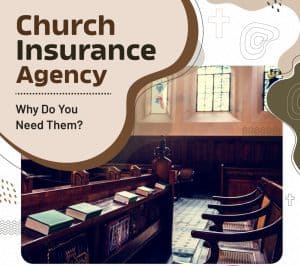Can Pastors Counsel Without a License: Licensed Biblical Counselor vs. Unlicensed Counselor
A pastor is a religious leader who provides guidance and spiritual counseling to church members. In some cases, pastors may also provide counseling to people who are not members of their congregation.
The question arises as to whether or not a pastor can provide counseling without a license. The simple answer is that it depends on the state in which the pastor resides and the type of counseling they are conducting.
In general, most states allow clergy to provide limited forms of counseling without requiring them to obtain a professional license. However, some states have stricter laws requiring clergy to obtain a license to provide counseling services.
Pastors must be aware of their state’s laws to provide appropriate care to those seeking guidance.
What is Pastoral Counseling?
Pastoral counseling is a specialized type of mental health counseling that combines psychotherapy and theological concepts. It is intended to provide spiritual guidance, healing, and growth for people seeking help.
People may choose to see a pastoral counselor instead of a licensed therapist due to the unique religious perspective provided by the pastor, as well as the additional resources such as prayer, scripture study, and participation in community activities that can help guide them on their journey. Pastoral counselors are often hired by churches and interfaith families due to their cultural and religious awareness.
They provide services such as counseling families or individuals facing mental health problems or spiritual issues. If the Pastor is a licensed therapist, they are trained to diagnose mental health disorders and intervene in substance abuse cases or other interpersonal issues to bring about healing.
Unlicensed pastors cannot diagnose individuals and may only provide spiritual guidance.
What is a Licensed Biblical Counselor?
A Licensed Biblical Counselor is a type of counselor who uses the Bible as the foundation for their counseling practices. They may use biblical teachings to help individuals understand and overcome their challenges and difficulties to promote spiritual growth and healing.
Licensed Biblical Counselors often work in church settings and may have a background in theology or a related field. Some churches hire outside licensed therapists to help their church members with more complicated issues that fall outside of spiritual guidance.
Should Pastors who are Unlicensed Counselors Consider becoming Licensed Pastoral Counselors?
Members of the clergy provide spiritual counseling without compensation to their church members. However, there may come a time when a church wants a person licensed within their religious communities.
In general, becoming a licensed clinical counselor can provide pastors with additional training and expertise in pastoral counselor work, which can help them better serve the needs of their congregants. This can be especially beneficial if the pastor is regularly called upon to provide licensed therapy versus spiritual counseling or support to individuals within the church.
However, becoming a licensed therapist also requires a significant amount of time and effort, as well as meeting specific educational and professional state license requirements.
Pastors already very busy with their other responsibilities may not have the time or resources to pursue this additional training. In these cases, it may not be practical for the pastor to become a pastoral counselor licensed by their state.
Ultimately, the decision to become a church pastor that is also a licensed professional clinical counselor should be based on the individual pastor’s goals and the needs of their congregation.
Suppose you are considering becoming a pastor or an existing pastor who is unsure whether becoming licensed by the state to become a licensed mental health therapist is the right decision. In that case, you may want to discuss your options with other pastors or licensed counselors for advice and guidance.
What are the Qualifications for Providing Pastoral Counseling Services?
To provide licensed pastoral counseling services, one must possess at least a graduate or doctoral degree in clinical counseling, marriage and family therapy, social work, or clinical psychology. Professional counseling must be done by a licensed individual who meets state requirements.
Additionally, they must be ordained or the equivalent in their religion and have completed at least 375 hours of practical pastoral counseling experience.

Do Pastors need to be Licensed to Provide Spiritual Counseling Services?
The requirement for pastors to be licensed to provide spiritual counseling services can vary depending on the laws of the state where they practice and the specific nature of the counseling services they provide. In some states, pastors may provide spiritual counseling without holding a professional license as long as they do not engage in activities reserved for licensed counselors, such as diagnosing mental health disorders.
However, in other states, pastors may be required to hold a professional license to provide counseling services, including spiritual counseling. This can depend on the pastor’s license, their specific services, and whether they receive payment.
It is vital for pastors to be aware of the laws and regulations in their state regarding the provision of counseling services and to ensure that they comply with these laws. Pastors unsure whether they need to be licensed to provide spiritual counseling services may want to consult a legal professional for advice.
Do Pastors need to be Licensed to Provide Professional Therapeutic Counseling Services?
Whether pastors need to be licensed to provide professional therapeutic counseling services can depend on the laws of the state where they practice and the specific nature of the services they provide.
In general, most states require individuals who provide professional therapeutic counseling services to hold a license, such as a Licensed Professional Counselor (LPC), Licensed Marriage and Family Therapist (LMFT), or Licensed Clinical Social Worker (LCSW).
However, there may be exceptions or exemptions to these licensing requirements for pastors who provide spiritual counseling services within the context of their religious ministry. For example, some states may allow pastors to provide counseling services without a license as long as they do not engage in activities reserved for licensed counselors, such as diagnosing mental health disorders.

Should a Pastor Consider any Church Insurance Requirements when Offering Counseling Services?
Yes, several church insurance coverages need to be in place. These include:
General Liability Insurance
General liability insurance is an essential protection for pastors offering counseling services. It provides fundamental insurance coverage in which church insurance companies will add the needed coverages to the policy. This includes adding pastoral counseling insurance coverage and abuse and molestation insurance.
Pastoral Counseling Insurance Coverage
Insurance coverage is vital for pastors offering counseling services because it can help protect them from any potential financial losses. In addition, with insurance, pastoral counselors are more likely to receive reimbursement for their services.
This is especially beneficial in areas needing behavioral health services due to the mental health workforce shortage. Insurance also ensures that these counselors are on an equal footing with other mental health professionals, allowing them to provide their specialized services legitimately.
Abuse and Molestation Insurance
Abuse and molestation insurance is a type of coverage that helps protect pastors from potential financial liability when they offer counseling services. This type of insurance could provide financial assistance if a pastor were to be sued due to the counseling services he offered, and the victim claimed they were sexually abused.
It can also help ensure that the counselor follows ethical guidelines and state laws or regulations about counseling services. By obtaining abuse and molestation insurance, pastors can offer comprehensive counseling services, and the church has the needed protection in case of a lawsuit.
Directors and Officers Insurance
The elder board needs financial protection when the church offers community counseling services to its church members. This will protect board members if they are accused of wrongdoing associated with mental health counselors at the church.

Frequently Asked Questions
What is counseling?
Counseling is a form of support in which an individual speaks with a counselor or therapist to discuss their issues, thoughts, and feelings. Counselors can offer valuable insight, guidance, and assistance navigating complex mental health issues.
Depending on the counseling type, some counselors may be required to obtain specific licenses to provide services. Congregants often call upon ministers for counseling; however, it is essential for those seeking counsel from clergy members to understand both the legal and ethical implications of such practices before beginning any sessions.
What is the difference between a counselor and a therapist?
A counselor and a therapist are both mental health professionals who work with individuals to help them overcome personal challenges and improve their mental health. However, there are some critical differences between these two professions.
The practice of professional counseling typically has a master’s degree in psychology as their course of study. They may be licensed to provide various mental health services, including individual and group therapy, marriage and family counseling, and substance abuse treatment. Counselors may work in various settings, such as schools, hospitals, community organizations, and private practice.
Therapists, on the other hand, typically have a graduate degree in a mental health field, such as psychology or social work. They may be licensed to provide more specialized mental health services, such as cognitive-behavioral therapy or psychodynamic therapy. Therapists may also have a more in-depth understanding of mental health disorders and their treatment and may be more likely to work with individuals with severe mental illness.
Both counselors and therapists can be valuable sources of support and guidance for individuals struggling with mental health issues. Still, the professional best suited to a particular person’s needs may depend on their specific situation and goals.
Before a church starts a counseling ministry, it must follow its local and state laws and secure the needed liability insurance for churches.
What is the difference between Christian counseling and pastoral counseling?
Christian and pastoral counseling are both forms of therapy that use biblical teachings and principles as the basis for their approach. However, there are some key differences between these two types of counseling.
Christian counseling is a broad term that refers to any counseling based on Christian beliefs and values. This can include a range of approaches, such as cognitive-behavioral, psychodynamic, or solution-focused therapy. Christian counselors may work in various settings, such as churches, private practice, or community organizations, and may have a background in theology or a related field.
On the other hand, pastoral counseling is a specific type of counseling that pastors or other religious leaders provide. Pastoral counselors often work in church settings and may use their knowledge of theology and religious traditions to help individuals understand and overcome their challenges. Pastoral counseling can also include spiritual guidance, support, practical advice, and support for everyday life issues.
The main difference between Christian counseling and pastoral counseling is the specific role and background of the individual providing the counseling. Most Pastors are simply a person who is not licensed to practice mental health services but rather offer spiritual guidance. Both can be valuable sources of support and guidance for individuals seeking help from a Christian perspective.
Where can pastors obtain a biblical counseling license?
Pastors interested in obtaining a biblical counseling license can do so by completing a biblical counseling program at a seminary or other religious institution. These programs typically include coursework in theology, biblical studies, and counseling and may also require the completion of a supervised internship or residency program.
Pastors who have completed a biblical counseling program may be eligible to sit for a licensing examination, such as the National Association of Nouthetic Counselors (NANC) certification exam. Completing this exam can qualify the individual to become a certified biblical counselor.
Pastors interested in obtaining a biblical counseling license can contact seminaries or other religious institutions in their area to inquire about available programs and requirements. They can also contact professional organizations, such as the American Association of Pastoral Counselors or the American Association of Christian Counselors, for more information and guidance.
A pastor may also seek an MFT license for more comprehensive training and schooling.
Should church members seek help from a licensed professional counselor for relationship issues?
Whether church members should seek help from a licensed professional counselor for relationship issues can depend on their specific situation and needs. In general, seeking help from a licensed professional counselor can be valuable for individuals to address relationship issues and improve their mental health.
Licensed counselors are mental health professionals who have completed specialized training and education in counseling. Their state typically licenses them to provide various mental health services, including individual and couples therapy. Licensed professional counselors can provide supportive, non-judgmental, and confidential environments for individuals to explore their relationship issues and develop strategies for addressing them.
However, it is important for individuals to choose a licensed professional counselor well-suited to their specific needs and goals. This may involve researching different counselors and their credentials and asking for recommendations from friends, family, or church leaders.
Overall, seeking help from a licensed professional counselor can be a valuable way for church members to address relationship issues and improve their mental health. However, the decision to seek help from a counselor should be based on the individual’s specific needs and goals.
Which states require pastoral counselors to be licensed?
The requirement for pastoral counselors to be licensed can vary depending on the state where they practice.
In some states, pastoral counselors may be exempt from licensing requirements if they provide counseling services within the context of their religious ministry. In other states, pastoral counselors may be required to hold a professional license, such as a Licensed Professional Counselor (LPC) or a Licensed Clinical Social Worker (LCSW), to provide counseling services.
It is essential for pastors who provide counseling services to be aware of the laws and regulations in their state regarding the provision of counseling services. Pastors who are unsure whether they need to be licensed in their state can contact their licensing board for information and guidance.
The licensing requirements for pastoral counselors can vary depending on the state where they practice. Pastors who provide counseling services should be aware of the laws and regulations in their state and ensure that they comply with these requirements.
Need Church Insurance Coverage for Your Paid Marriage Counseling Services
Church insurance coverage is essential for any paid or free marriage counseling services. It is crucial to make sure that all of your clients are adequately covered in the event of an accident or injury.
Church insurance can provide peace of mind for both you and your clients by providing financial protection against claims for bodily injury, property damage, and personal injury resulting from the activities of your marriage counseling practice. In addition, church insurance can help protect your nonprofit organization from liability claims arising from negligence related to your services.
Church liability insurance will also cover the costs associated with legal defense should a claim arise from your counseling services. Contact one of our licensed church insurance agents today, and we will review your policy and help you save money on our church insurance coverage.









